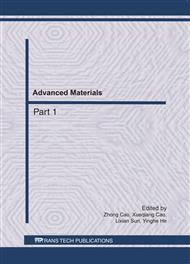p.548
p.552
p.558
p.563
p.567
p.571
p.575
p.580
p.585
Corrosion of P110 Steel in Solutions Containing Different Chemical Compositions
Abstract:
Carbon dioxide corrosion is a very complex electrochemical process. Compositions of formation water in different gas and oil wells are various, which effects on the carbon dioxide corrosion of tubular steel. HCO3- and SO42- were studied in order to further understand their role on the corrosion process. The results show marked difference when they are the main composition while others conditions is the same. HCO3- mitigates the corrosion, because its participation in cathodic and anodic reactions accelerates passivation. However, corrosion in formation water mainly containing Na2SO4 is severe, which presents higher general corrosion rate and more dangerous localized corrosion.
Info:
Periodical:
Pages:
567-570
Citation:
Online since:
May 2011
Authors:
Price:
Сopyright:
© 2011 Trans Tech Publications Ltd. All Rights Reserved
Share:
Citation:


